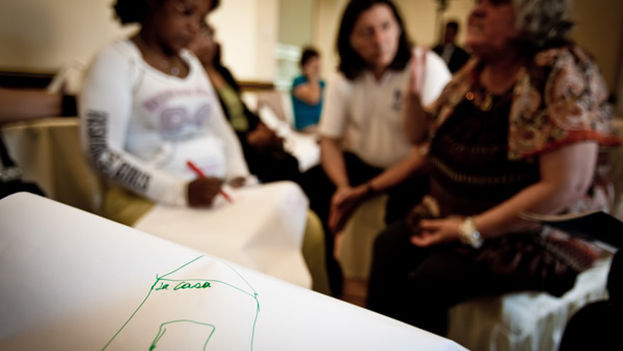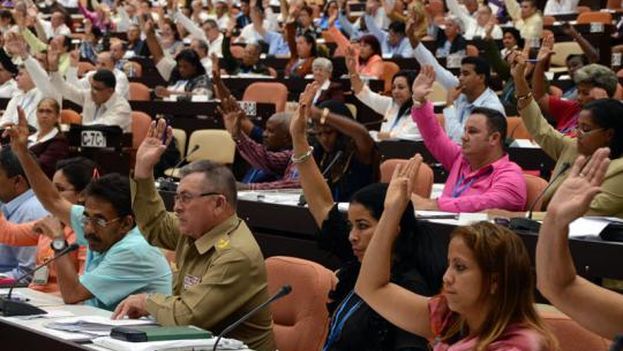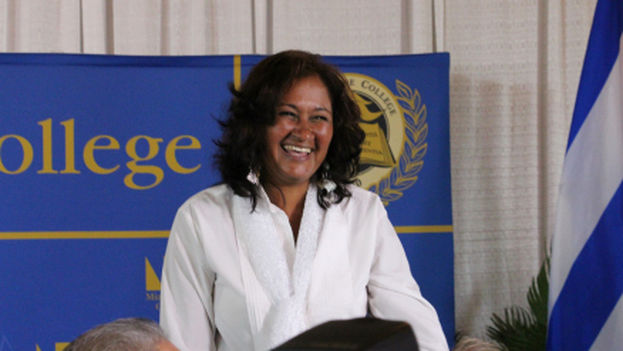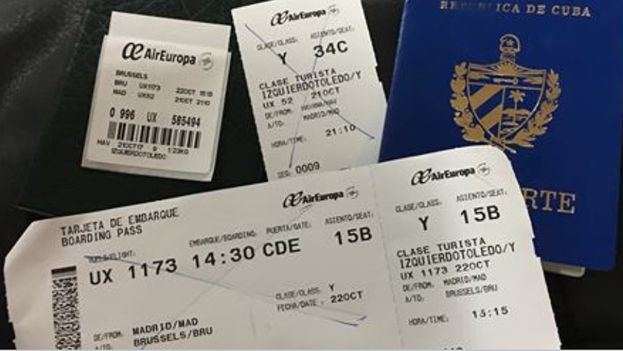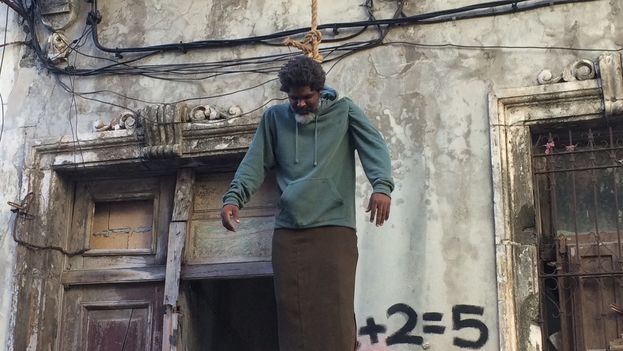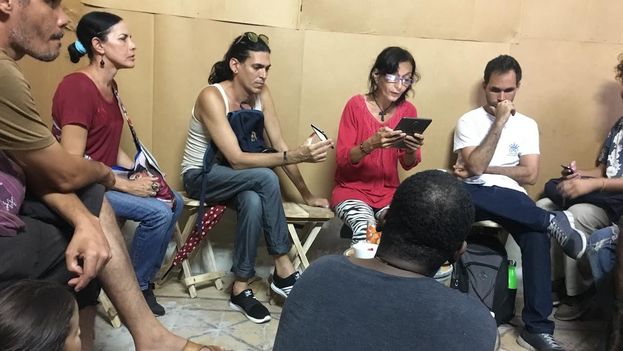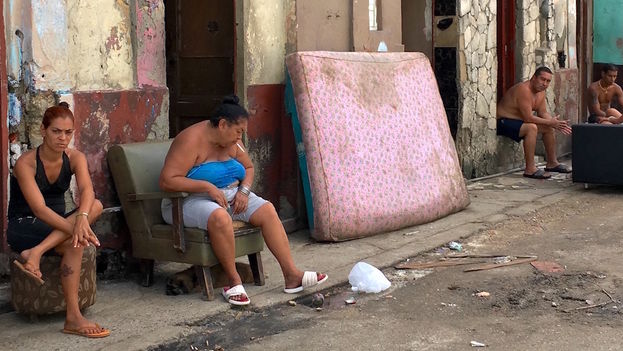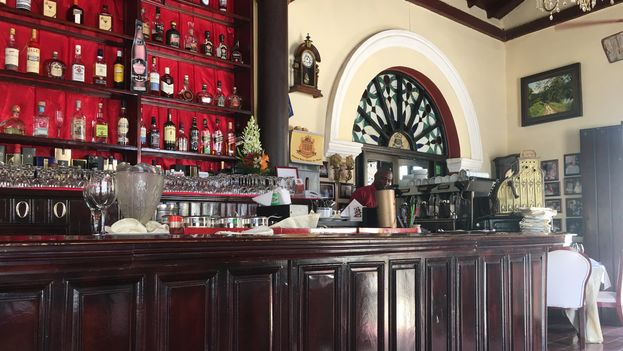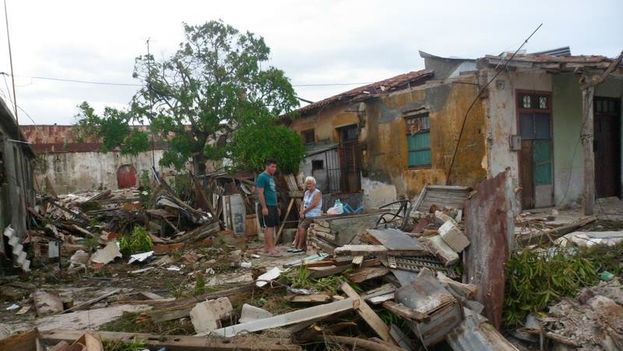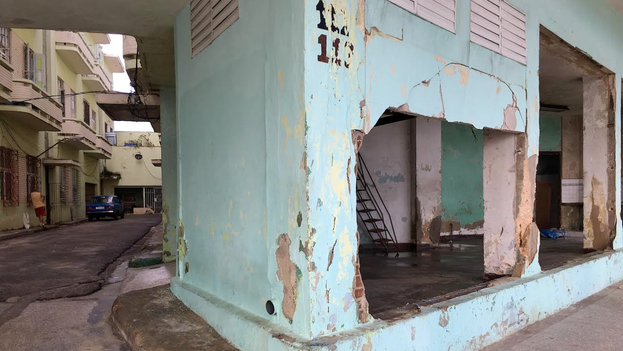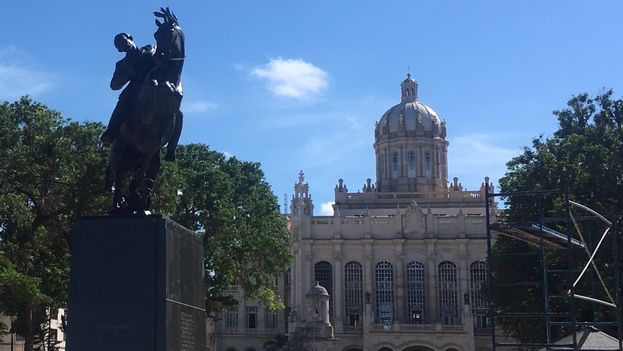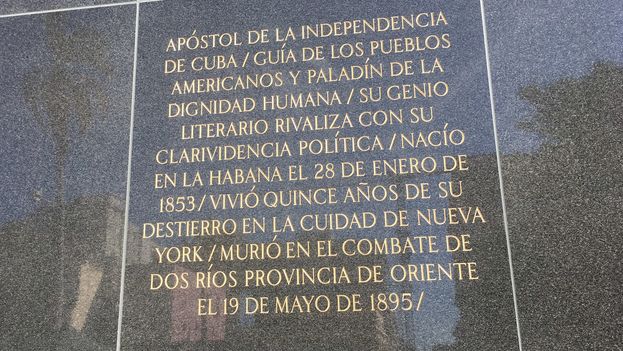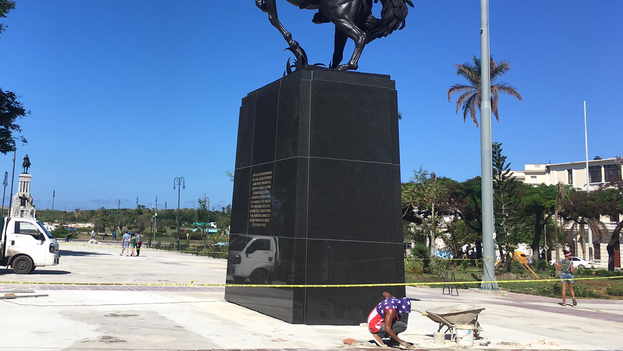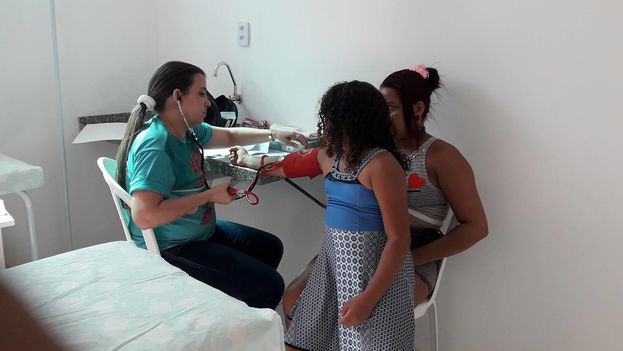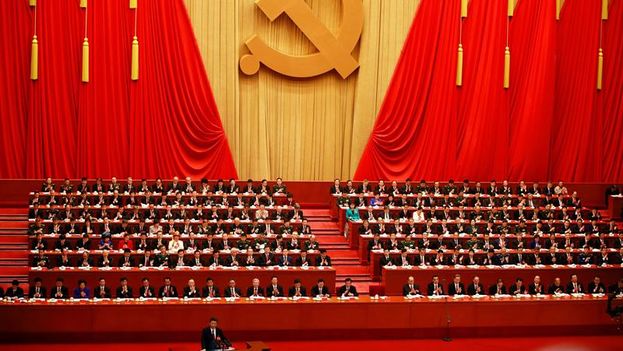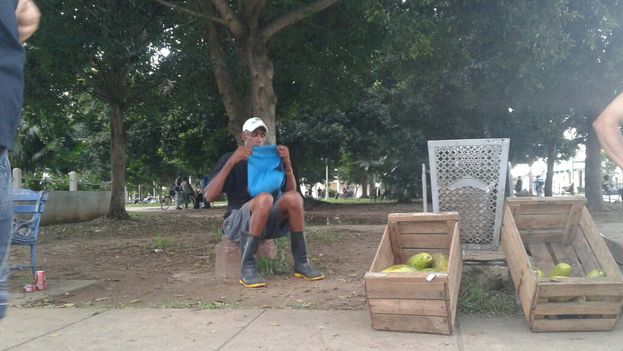The doctor says that he has lost the illusions of the first years after coming to realize he had become “a slave” of the Cuban government and that he needs to live his life “independently.” continue reading
The doctor is one of the dozens of doctors trying to break away from the tripartite agreement with the Pan American Health Organization (PAHO), the Cuban Ministry of Health, and its counterpart in Brazil through which the island has more than 11,000 doctors stationed on Brazilian soil.
The professionals are trying to leave the tripartite agreement with the Pan American Health Organization, the Ministry of Health of Cuba and its counterpart in Brazil, through which the Island has more than 11,000 doctors in Brazil
“Pakistan, Haiti, Venezuela, Bolivia and then Brazil. In all these countries I have been in risky situations, in the midst of earthquakes and epidemics. I have done what Cuba and the governments of the places where they have sent me would have me do, but now I want them to let me be free,” says Hidalgo.
The doctor currently lives in the state of Maranhao, in the northeast of Brazil, one of the poorest in the country, but is now part of a “silent revolution” that is shaking up the Cuban physicians. According to Brazilian lawyer André De Santana Correa, who represents 80 doctors from the island, including Hidalgo, “the cooperation agreements signed by Rousseff’s Government, mediated by PAHO, violate the principle of isonomy [equality before the law] and the social dignity of work.”
Doctors from other countries can be hired directly by the Mais Médicos (More Doctors) program and receive a full salary. In the case of Cubans they require PAHO mediation and the money paid by Brazil goes directly to the Cuban Government, which in turn distributes only a part of it in the form of stipends to the doctors.
De Santana is optimistic about the possibility of winning the legal battle that allows Cubans to obtain the maximum benefits of the Mais Médicos program. “There are no official figures for the number of physicians who are filing appeals at court, but there are at least 154,” he explains to 14ymedio.
“The main obstacles we face are the issues of judicial power, and the question of the budget which also affects justice, but there is a good chance of winning,” he says.
Cuban medical missions are the primary source of income for the Havana government. Cuba exports the work of its doctors to 62 countries and charges about 10 billion dollars each year for health services. Less than a third of the salaries specified by contracts goes into the pockets of the doctors, leading this work structure to be considered “modern slavery” by labor rights advocates.
In Brazil, the Mais Médicos program, established during the presidency of Dilma Rousseff, allowed 11,400 Cuban doctors to provide their services in difficult areas of the country. Brasilia pays Havana, through the Pan American Health Organization, about $3,300 a month for each physician, while the doctor receives only 2,976 reales (about 900 dollars).
“Not only do they steal our salary, but they also took most of the money the Brazilian government provides as an allowance when we arrive from Cuba so that we can furnish the place where we are going to live,” Hidalgo explains. Brazil paid $3,000 to $9,000 for each foreign doctor to get settled in housing, but of that the Cuban government only passes on $1,261 to the doctors.
Brasilia pays Havana, through the Pan American Health Organization, about $3,300 a month for each physician, while the doctor receives only $900
In 2016, Hidalgo decided to leave the Cuban medical mission despite the reprisals from the Cuban government. Since then he has worked caring for livestock and peddling, while he is in the process of revalidating his title in Brazil and pursuing litigation in the courts to allow him to participate in the Mais Médicos program independently, without PAHO mediation.
“When Cuba finds out that you are engaging in a judicial process to get out from under the PAHO guardianship, they immediately send a medical mission coordinator to your house. That person does not give you anything in writing, but tells you that if you do not return to the island within 24 hours you will not be able to do so for eight years and you immediately become a deserter and a traitor,” explains Hidalgo. In 2015, the government decided to change that policy and accept the return of doctors who formerly were classified as deserters, because of a shortage of healthcare professionals in the country.
One of the clauses that the government imposes on professionals in the Mais Médicos mission is a prohibition on taking the exams to revalidate their medical degree in Brazil, according to what 14ymedio confirmed with someone who had access to one of those contracts
Noel Fonseca and his wife, Diusca Ortiz, have been practicing medicine for 20 years and say that with all the money they have earned for the government, they could afford to pay the cost of their medical studies on the island several times over. The fact that Cuban doctors did not pay to go to medical school is one of the government’s main justifications for keeping the money they earn working abroad.
“The doctors have already given a lot of money to Cuba. In Angola I had a contract that paid the Cuban government $4,000 a month and of that I only received $600. In the three years I worked for Brazil, the Cuban government earned more than $100,000 dollars from me and let’s not even talk about Venezuela,” says Fonseca.
The couple is also in a legal process that allows them to enter Mais Médicos without the sponsorship of Cuba. In September they took a test to revalidate their titles in Brazil.
“When we decided not to return to Camagüey, a representative of the Ministry of Health in Cuba went to our house and told my elderly mother and my minor son that they would not see us for eight years,” says Fonseca indignantly. Cuba also cut off access to the public health e-mail system that allowed them to communicate with their families.
“In Angola I had a contract that paid the Cuban government $4,000 a month and of that I only received $600. In the three years I worked for Brazil, the Cuban government earned more than $100,000 dollars from me and let’s not even talk about Venezuela”
The couple, who worked in Arari, a city in northern Brazil, were replaced by a couple of Cuban doctors who immediately informed the PAHO coordinator that the deserters had received help from the city.
“They fired us. Cuba got the Brazilian Ministry of Health to demand that the municipalities eliminate any aid to doctors who left the program,” says Fonseca.
Havana applied pressure by not sending more than 700 doctors in the first quarter of the year and that had an effect; Brazilian Minister of Health Ricardo Barros cancelled the program in more than 49 municipalities that helped emancipate Cuban doctors.
“Brazil wants to help us, but the situation is difficult because they don’t have doctors to serve in the poor regions and Cuba uses this as a tool for blackmail,” explains Fonseca.
“Thousands of doctors have married Brazilians to obtain residency in the country and in the past many people escaped to the United States when [the Cuban Medical Professional] Parole Program existed for the doctors, but now that the Americans have closed that door there’s nothing left for us but to fight here,” says the doctor.
In February, the Brazilian government held a contest to award Mais Médicos places to Brazilian doctors, but while 6,285 doctors registered to win one of the 2,320 seats, only 1,626 showed up for work and since then 30% have left their posts due to the difficult working conditions.

![]() 14ymedio, Havana, 26 October 2017 — Oliver Tambo, one of the most important leaders of the anti-apartheid movement in South Africa, has a new partner. The sculpture of the leader in the province of Free State is next to a bronze statue of Fidel Castro that was unveiled this week.
14ymedio, Havana, 26 October 2017 — Oliver Tambo, one of the most important leaders of the anti-apartheid movement in South Africa, has a new partner. The sculpture of the leader in the province of Free State is next to a bronze statue of Fidel Castro that was unveiled this week.
